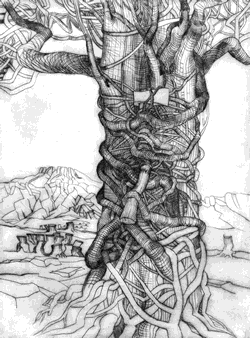|
DE LA NACIÓN
ESTADO A LA NACIÓN MULTICULTURAL
Una reflexión histórica y crítica
Santiago Bastos Amigo
 Este
artículo analiza lo que suponen propuestas como la de “nación
multicultural” a través de un repaso histórico
de la forma en que se han relacionado los conceptos de Estado,
nación y cultura. El Estado nacional es una construcción
histórica surgida en Europa y su aplicación en América
Latina supuso la negación pero al mismo tiempo la segregación
de la población indígena. Las demandas que este
grupo lleva planteando desde hace algunas décadas suponen
un reto a esa construcción nacional, y ello se plasma en
las fórmulas que se asumen de forma explícita o
implícita como alternativas: el “Estado multinacional”
y la “nación multicultural”. Sin embargo, ambas
provienen de experiencias históricas diferentes a la latinoamericana,
por lo que es necesaria una revisión crítica de
sus implicaciones para poder ser adaptadas a realidades tan complejas
y dinámicas como lo es, por ejemplo, la guatemalteca. Este
artículo analiza lo que suponen propuestas como la de “nación
multicultural” a través de un repaso histórico
de la forma en que se han relacionado los conceptos de Estado,
nación y cultura. El Estado nacional es una construcción
histórica surgida en Europa y su aplicación en América
Latina supuso la negación pero al mismo tiempo la segregación
de la población indígena. Las demandas que este
grupo lleva planteando desde hace algunas décadas suponen
un reto a esa construcción nacional, y ello se plasma en
las fórmulas que se asumen de forma explícita o
implícita como alternativas: el “Estado multinacional”
y la “nación multicultural”. Sin embargo, ambas
provienen de experiencias históricas diferentes a la latinoamericana,
por lo que es necesaria una revisión crítica de
sus implicaciones para poder ser adaptadas a realidades tan complejas
y dinámicas como lo es, por ejemplo, la guatemalteca.
FROM THE
STATE-NATION TO THE MULTI-CULTURE NATION
A historical and political reflection
Santiago Bastos Amigo
This
article is a review of the assumptions behind postulates such
as the “multi-culture nation” through a historical review
of the manner in which the concepts of State, nation, and culture
have interrelated. The national State is a historical construct
born in Europe, and its adoption in Latin America assumed denial
but likewise segregation of the indigenous population. The claims
that this group has been asserting for the last few decades represent
a challenge for the national construct, as evidenced by the formulas
that are explicitly or implicitly assumed as alternatives to the
“multi-nation” or “multi-culture” State. Notwithstanding,
both have their roots in other than the Latin American historical
experiences; and therefore a critical review of their implications
is required so that they can be adjusted to realities as complex
and dynamic as, for instance, the one found currently in Guatemala.
|